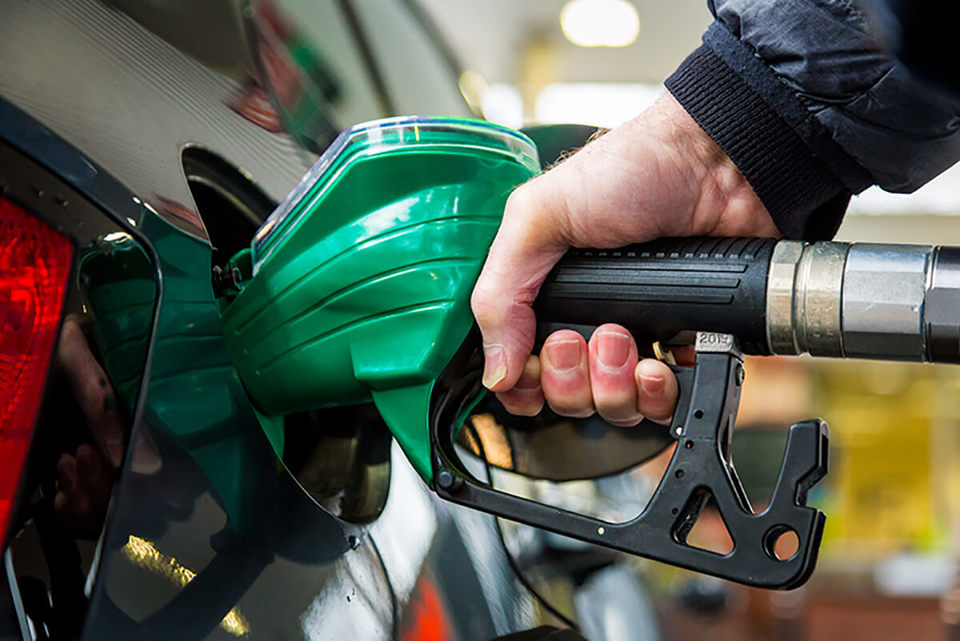A former Government transport advisor says the Treasury must honour its pledge to increase fuel duty in line with inflation in the next Budget.
Professor David Begg claims the Government’s seven-year freeze on fuel duty has caused an extra 4.5 million tonnes of CO2 emissions, in a report published today.
Pump prices are 13% lower than they would otherwise have been due to the fuel duty freeze, resulting in a 4% increase in traffic since 2011 and a similar decrease in public transport use, equal to up to 60 million fewer rail journeys and 200 million fewer bus journeys, it says.
The report - The Unintended Consequences of Freezing Fuel Duty - commissioned by Greener Journeys, the sustainable transport group, says this has triggered a major increase in carbon emissions as well as an additional 12,000 tonnes of NOx emissions and 816 tonnes of PM10 particles.
Begg, chief executive of Transport Times and former chairman of the Government’s Commission for Integrated Transport, said: “Whilst the freeze in fuel duty has been welcomed by many road users there have been unintended consequences in terms of increased pollution and congestion and a shift from public transport to car use, which policy makers should be aware of if they continue with this policy.
“The Chancellor has said he will increase fuel duty in line with inflation at the next Budget. It is vital that Government delivers on this commitment as a minimum if it is to send the right price signals to consumers.”
Fuel duty has not increased since January 2011, when it was increased from 58.19p per litre to 58.95p per litre. It was cut by 1p per litre in the Budget two months later, and has since been frozen.
The freeze in fuel duty has cost the Treasury approximately £7 billion in lost tax revenue.
However, fleets have endured pump price volatility, with the price of petrol and diesel having increased every day since the end of March on supermarket forecourts, RAC Fuel Watch data reveals.
A litre of unleaded bought at the big four supermarkets averaged 116.66p and diesel 119.35p on March 26 – eight weeks later on May 23 their pump prices average at 124.74p for petrol and 127.69p for diesel. An 8p a litre increase to the average price at their pumps.
UK average prices have suffered even more over the same period as a result, rising almost 8.5p a litre – although not every day. Petrol has gone from 119.78p to 128.29p and diesel has increased from 122.54p to 131.15p.
RAC roads policy spokesman Nicholas Lyes said: “Petrol and diesel prices are currently at a three-and-a-half year high, and there is the prospect of them reaching record levels if the oil price continues to climb.
“In this scenario, we should be talking about the Government acting to help bring prices back into check by lowering fuel duty to protect the economy – not putting up tax on fuel.”
The report also warns that unless a new way to pay for road use is introduced, traffic will increase by an additional 30% by 2035. This is on top of the 40% growth in traffic already predicted by the Department for Transport, leading to an overall increase in traffic of 70%.
Claire Haigh, chief executive of Greener Journeys, said: “The price of fuel is one of the most politically divisive issues in the country. However, we know that diesel cars and vans are the biggest contributors to harmful NOx emissions, which are creating a public health emergency in the UK.
“We urgently need a shift from car to bus and other forms of sustainable transport if we are to tackle the UK’s air pollution crisis and reduce congestion on our roads.”
The report comes as the Government launched a consultation on how 33 councils should reduce nitrogen dioxide (NO2) emissions in the shortest possible time.
The Government was ordered by the High Court in February to take stronger action to improve air quality in areas not compelled to introduce clean air zones (CAZs) or submit local action plans.
Defra says it wants to know what measures will be effective in reducing roadside NO2 levels in these 33 local authorities in England. It is also interested in how these measures should be assessed.
These views, it says, will help inform the local authority studies, which need to be submitted to the government by July 31.
The Government will consider the results, and will publish a supplement to the UK plan for tackling roadside nitrogen dioxide concentrations by October 5.





















Overtaxed motorist - 01/06/2018 12:00
Thousands of trains cancelled daily due to new timetabling chaos. This Greener Journeys pressure group, funded by the train and bus oligopolies, should ask its funders to put their own house in order before calling for increased taxation of the only reliable viable alternative.